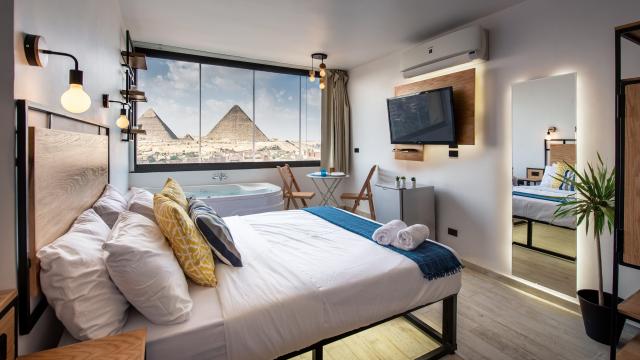Short-term rental platforms are here to stay — and when you think of short-term renting, you think of Airbnb. But there are a growing number of reasons to avoid Airbnb like the plague. Aside from rising prices and poor customer service, Airbnb has been accused of destroying neighbourhoods and not respecting your privacy much — or at all.
One of Airbnb’s biggest problems are listings that don’t necessarily break any rules — they’re not scams, really — but definitely trick you into renting a place that you probably wouldn’t have otherwise, or trick you into overpaying. Here are the ways your Airbnb host might be deceiving you.
Carefully-staged, misleading photos
The same deceptive tricks used by real estate listings can be applied to any Airbnb listing — including temporary staging, specific angles, and even outright photoshopping. Low-resolution photos also hide a litany of defects, including cheap furnishings and hard-to-see dirt. In extreme cases like this poor tourist’s experience in Paris, the photos posted with the listing could be old and not at all representative of the current state of the property. Yes, it was once a glorious place to stay, but today it’s a broken-down dump.
Omitted listing details
Sometimes an Airbnb listing simply doesn’t give you the whole story. For example, this couple complained that they rented what they thought was a standalone house to have all to themselves, only to discover that it was actually a guesthouse located in the backyard of the main house. There might have been a mention of this in the listing, they admit — but again, these tricks aren’t necessarily illegal or against Airbnb’s terms of use. They’re merely deceptive.
Another trick is a failure to mention that the property is subdivided. If you have an exclusive entry and there are no shared spaces included, the listing can tell you that you’ll have the whole “house” to yourself. But there could be other levels with their own private entry, so you’ll find yourself sharing a property — and perhaps not enjoying all of its amenities if some are exclusive to other subdivisions.
Videos can be deceptive, too
Videos might seem more reliable than still photos, but they can also be used deceptively without quite crossing into outright scam territory. The easiest thing for shady hosts to do is simply frame the video carefully to omit details that don’t jive with the image they’re selling.
Consider this video of an Airbnb in Egypt posted by TikTokker @aureliestory, which shows her walking through what appears to be a luxurious apartment with a spectacular view of the pyramids. Seeing this video, you naturally want to stay there, and you might be prepared to pay a high rental to do so. But fellow TikTokker @MaxMakesMoney went to the same Airbnb and showed that while the view is real (and spectacular), the rest of the apartment and its surroundings were not nearly as glamorous. The apartment might still be worth renting for the view, but the video itself was incredibly deceptive.
The main thing to note is that there’s no outright trickery here — it’s all done simply by being thoughtful about what’s actually captured in the frame. That should make you wary of every video you see of a rental apartment or house.
Stretching the truth in listing descriptions
Sometimes the easiest way to deceive you into renting an Airbnb is to simply stretch the truth a little in the listing description. A few examples of common stretches include:
- Calling a breezeway or an open-air walkway outside the space a “patio” or “outdoor area. It might even be technically true, but these hosts know what you’re picturing.
- Noting that there is laundry on-site, but forgetting to note it’s a common laundry area and costs money.
- Listing a kitchen that is actually just a microwave and a dorm fridge.
- Describing the place as “close” to downtown or cultural sites without specifying what, exactly, “close” actually means.
This can get pretty subtle, of course, and there’s a fine line between a creative description and a deceptive one. But you’re paying money for a service — you should get something that’s reasonably similar to the description.
Your best defence against these practices is the reviews other people have left, and a little online detective work. Google Street View can sometimes give you a clearer picture of the area, and even a sense of what the property actually looks like. Real Estate sites like Zillow might have old listings for the property that might have different photos or a more detailed description. For some general idea of the issues people encounter with deceptive listings, it’s always fun to peruse Airbnb Hell. It won’t help with specific research, but it can open your eyes to some of what you could encounter.

Leave a Reply
You must be logged in to post a comment.